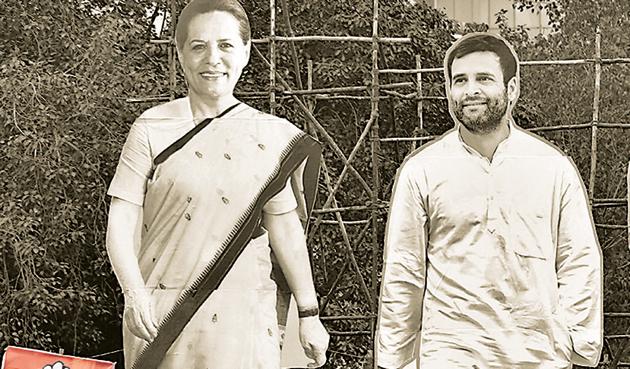The Congress is imploding from within
Jyotiraditya Scindia’s exit reveals that the party structure is disconnected from its own leaders and workers
Soon after the Congress was swept aside in the 2019 Lok Sabha elections, Jyotiraditya Scindia reportedly spoke up at a Congress Working Committee meeting, expressing the need for introspection and claiming that the party needed to become “future-ready” to take on a 21st century political juggernaut like the Bharatiya Janata Party (BJP). Scindia’s concern was met with silence within the party’s highest decision-making body. Nine months later, the silence has been broken: Scindia has walked out of the party and aligned with the BJP in what seems a well-planned move to topple the Congress government in Madhya Pradesh (MP).

It would be easy to paint Scindia’s move as yet another example of the de-ideologised nature of contemporary politics where stout warriors against the BJP’s Hindutva agenda one day, turn saffron apologists the very next. Clearly, the red lines that were once drawn on “secular” politics have now been totally blurred. There is also little doubt that the timing of Scindia’s decision to quit coincides with the Rajya Sabha election schedule and is partly driven by the ambitions of a 49-year-old leader, who found himself being slowly pushed to the margins of state and national politics after having lost his Lok Sabha seat in 2019 and been edged out in the race for MP chief ministership in 2018. The argument is that the temptation to pitch his tent with the BJP in return for ministerial benefit may have been irresistible.
But can individual ambition alone explain the decision of a leading light of the Congress’s gen-next to switch sides so dramatically? The truth is that Scindia’s departure exemplifies the predicament of a party that is imploding from within. If the 2014 defeat was predictable, the 2019 Lok Sabha debacle signalled the complete decimation of the Congress as a political force of substance. Of the 192 seats witnessing a direct BJP versus Congress fight, the former won as many as 175 by an average margin of 23%. The recent Delhi elections, where only three of the 66 Congress candidates managed to save their deposit, is further evidence of the complete meltdown of the once-dominant force.
And yet, there has been little attempt by the Congress to break with the status quo, offer ideological clarity, and discover new ideas and energies that can offer a robust challenge to the BJP. The existing Congress leadership is primarily culpable in this regard. Rahul Gandhi’s resignation as Congress president in May 2019 was hardly a solution, since it only left the party rudderless and even more vulnerable to the Byzantine manipulations of intra-party factionalism. When Rahul was replaced by an ailing Sonia Gandhi in August 2019 as interim president, it only confirmed the unwillingness of the party’s well-entrenched cliques to risk looking at life beyond its First Family.
The Family may well have held the party together in gentler times, but in a more frenzied and competitive environment, it no longer seems able to ensure the organisation works as a cohesive unit. The result is a gradual atrophying of the party structure where the ubiquitous “high command” is not only disconnected from its workers, but also from its own leaders.
MP is a good example. With Kamal Nath playing a dual role as chief minister and state Congress chief, and with Digvijaya Singh reinforcing his stature as a two-time former chief minister, the Congress has chosen a path where the so-called “old guard” has monopolised the power pyramid in the state. This left the likes of a Scindia feeling increasingly frustrated and disenchanted, especially as a weakened high command was no longer willing to intervene and accommodate their interests. What is true of MP is equally relevant in neighbouring Rajasthan, where again a gen-next leader such as Sachin Pilot has been marginalised by a domineering Ashok Gehlot, another staunch representative of the Congress old order.
Both Scindia and Pilot may lack the political heft of the leaders of a previous generation who are seen as well networked with a strong grassroots connect. But they both possess a valuable quality in contemporary politics — they are youthful, energetic leaders who are effective communicators and speak a language that a younger demographic might identify with.
Only a constellation of such young, ideologically committed leaders can give the Congress what it so desperately needs at the moment — a complete overhaul in style and focus to compete with the BJP’s battle-hardened election machine. A disillusioned Scindia may well have opted out of the struggle altogether by taking the soft option and joining hands with the BJP; the question that must now worry the Congress is, at this rate will there be anyone left soon to fight the good fight?
Post-script: For those interested in a slice of historical trivia, Vijaya Raje Scindia was in the Congress before she joined the Jan Sangh in 1967 and helped bring down the DP Mishra-led Congress government in Madhya Pradesh. Fifty three years later, history is repeating itself in the form of her grandson!






